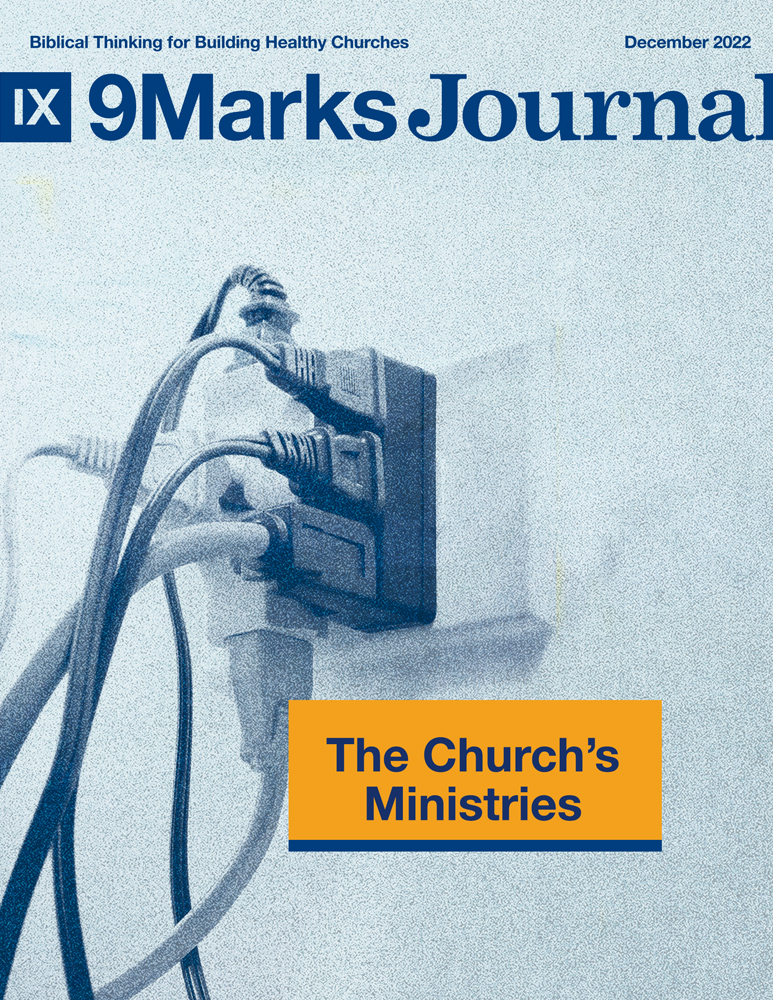Paul Was a Youth Pastor
December 15, 2022

December 15, 2022
Did you know that Paul was a youth pastor?
Don’t believe me? Take a look at Ephesians 6:1–4:
Children, obey your parents in the Lord, for this is right. “Honor your father and mother” (this is the first commandment with a promise), “that it may go well with you and that you may live long in the land.” Fathers, do not provoke your children to anger, but bring them up in the discipline and instruction of the Lord.
Paul may not have an Xbox and a copy of Rock Band, but he’s certainly doing the most basic job of a youth pastor: teaching “children” the Bible.
In fact, a closer look at “Paul the Youth Pastor” reveals several important principles we might apply in our churches as we seek to pastor children, youth, and families.
Compare verses 1 and 4:
The primary, though not exclusive, sphere for discipling young people is the home. God holds parents responsible for training their children. Of course, Paul isn’t suggesting that the church doesn’t play any role in evangelizing and discipling children. After all, in this very passage “Paul the Youth Pastor” addresses children in the church with the Word of God and applies it to their lives (6:1–3). But by comparing verses 1 and 4, it’s easy to see that Paul’s ministry aims to strengthen the relationship between parents and children. Children are directed to obey their parents, and parents are told to disciple their children in the ways of the Lord.
Paul’s emphasis on parents discipling their children challenges the overly common practice of isolated children’s and youth ministries. Isolated ministries segregate children and youth from most of the life of the church. In these types of ministries, the church offers young people a version of seemingly everything: youth rooms, youth conferences, youth worship, youth groups, youth evangelism teams, youth mission trips, youth services. This isolationist model of ministry often unintentionally reinforces one of the chief lies our culture tries to peddle to young people: they don’t need their parents.
But Jesus died to change all of that. In Christ’s kingdom, the hearts of the fathers are turned toward their children and the hearts of the children turn back to the fathers (Mal. 4:6). In fact, one evidence of conversion in parents is that they have a heart for their children, and one evidence of conversion in children is a turning of their hearts toward their parents.
Ministries to young people should aid the work of evangelism and discipling that many Christian parents are already doing. A healthy children’s or youth ministry will understand itself as a supplement.
Of course, some students who regularly attend your church may not have Christian parents, which is all the more reason to cultivate youth ministries that develop relationships between the youth and adult members of the church. These young people need spiritual mothers and fathers (Mark 10:29–31) which can only be found in the fellowship of God’s people.
Paul simultaneously tells parents to disciple their children and equips them for the task. He pastors the fathers (and by implication the mothers) in the church: “Fathers, do not provoke your children to anger, but bring them up in the discipline and instruction of the Lord” (v. 4).
A healthy ministry to children and youth will occur not as you focus on them, but as you focus on equipping parents for the work of parenting. Your church may equip parents through Sunday School classes on parenting, family-equipping seminars, or any number of other discipling opportunities. Remember the best way to equip parents in your church is through the ordinary means of grace, the regular preaching of the Word, and by upholding faithful Christians (particularly the elders) as models of godly parenting.
Parents may be the primary disciplers of their children, but that doesn’t stop Paul the Youth Pastor from inserting himself into the lives of these Ephesian children (Eph. 6:1–3). Isolationist children’s and youth ministries may be a problem, but also is the notion that churches should eliminate all age-segregated Bible instruction. The church still has a role to play—a supplementary one, but a significant one, nonetheless.
In this passage, Paul models how the church can directly minister to children and youth: teach them the Bible. He quotes Exodus 20:12, explains the text, and then applies it to their lives. It is entirely appropriate for pastors and members to teach children the Word of God directly as long as we keep in mind that the ultimate goal is to assist parents in their primary discipling responsibilities.
In short, what do we learn from Paul the Youth Pastor? Paul teaches kids the Bible and applies it to their lives, teaches in a way that leads children back to the authority of their parents, and equips parents to effectively disciple their children. Of course, this passage doesn’t give us a comprehensive picture of how the church should minister to young people, but it’s an instructive place to start.

For a church that wants to keep the main gathering primary in its discipleship and life together, what are the hallmarks of healthy ministries?
Go to Journal →